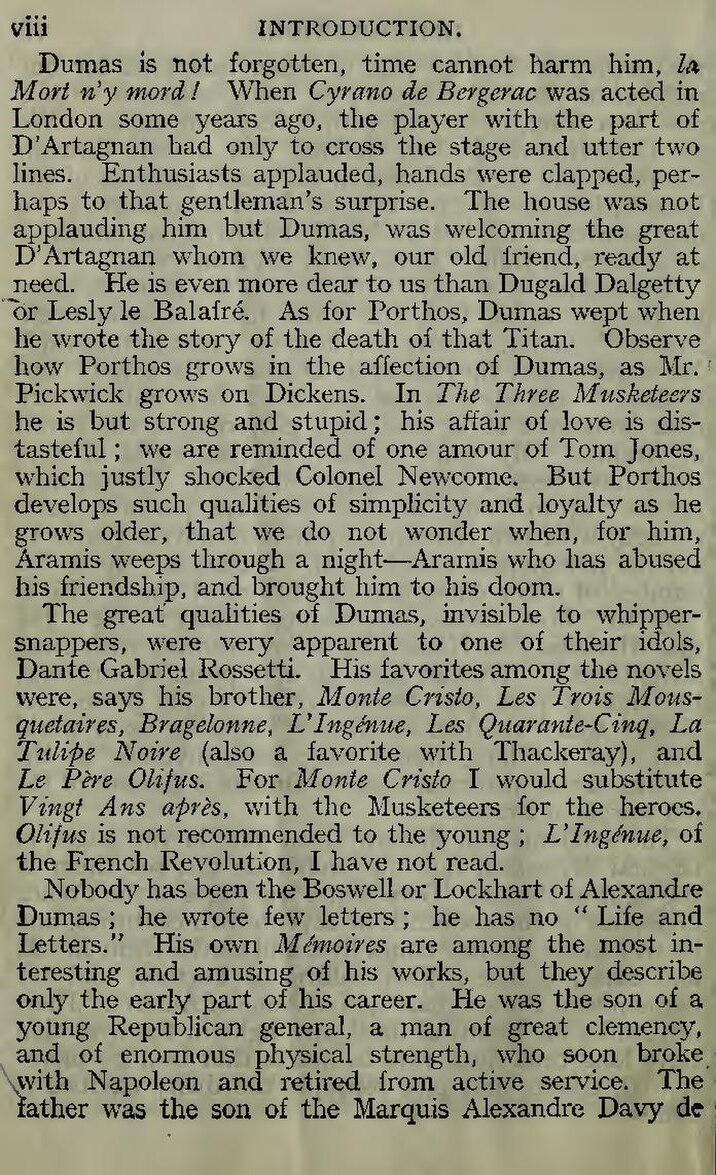Dumas is not forgotten, time cannot harm him, La Mort n'y mord! When Cyrano de Bergerac was acted in London some years ago, the player with the part of D'Artagnan had only to cross the stage and utter two line. Enthusiasts applauded, hands were clapped, perhaps to that gentleman's surprise. The house was not applauding him but Dumas, was welcoming the great D'Artagnan whom he knew, our old friend, ready at need. He is even more dear to us than Dugald Dalgetty or Lesly le Balafré. As for Porthos, Dumas wept when he wrote the story of the death of that Titan. Observe how Porthos grows on Dickens. In The Three Musketeers he is but strong and stupid; his affair of love is distasteful; we are reminded of one amour of Tom Jones, which justly shocked Colonel Newcome. But Porthos develops such qualities of simplicity and loyalty as he grows older, that we do not wonder when, for him, Aramis weeps through a night—Aramis who has abused his friendship, and brought him to his doom.
The great qualities of Dumas, invisible to whippersnappers, were very apparent to one of their idols, Dante Gabriel Rossetti. His favorites among the novels were, says his brother, Monte Cristo, Les Trois Mousquetaires, Bragelonne, L'Ingénue, Les Quarante-Cinq, La Tulipe Noire (Also a favorite with Thackeray), and Le Père Olifus. For Monte Cristo I would substitute Vingt Ans après, with the Musketeers for the heroes. Olifus is not recommended to the young; L'Ingénue, of the French Revolution, I have not read.
Nobody has been the Boswell or Lockhart of Alexandre Dumas; he wrote few letters; he has no "Life and Letters." His own Mémoires are among the most interesting and amusing of his works, but they describe only the early part of his career. He was the son of a young Republican general, a man of great clemency, and of enormous physical strength, who soon broke with Napoleon and retired from active service. The father was the son of the Marquis Alexandre Davy de
